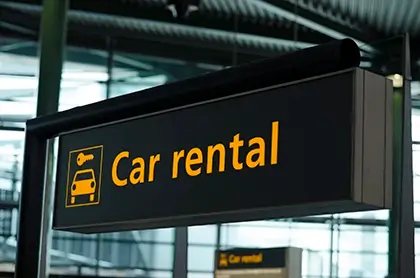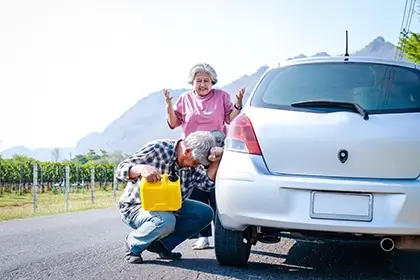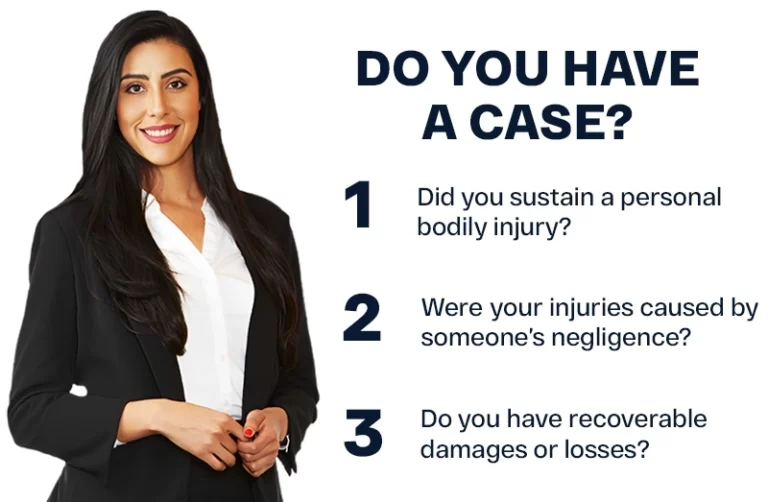Table of Contents

Stepping into the driver’s seat of a rental car can be a liberating experience, but what happens if an unexpected collision occurs on California’s bustling highways? The legal aspects of liability in a rental car crash demand a clear understanding of state-specific laws and rental agreements. Whether it’s a fender bender in the busy streets of Los Angeles or a side swipe on the scenic Pacific Coast Highway, being aware of the right steps to take is a must for locals and tourists alike.
Coping with a rental car crash is something you would rather not deal with during your vacation. However, when you hop into a vehicle that you’re not used to driving on unfamiliar roads, it’s important to remember the potential for a car accident. In many aspects, managing an accident involving a rental car shares similarities with the steps you would take in the event of a collision with your personal vehicle. However, due to the additional considerations presented by your car rental agreement, rental car insurance introduces several nuances for which some preparation may be necessary.
If you are injured in a rental car-related crash, our dedicated attorneys, who handle car accident cases, can provide you with assistance. At AK Law Firm, we can equip you with practical tips and insights to help facilitate a smooth post-accident process. Whether you’re a local resident or a visitor, having the appropriate legal knowledge, especially about car accidents, is indispensable for a more informed driving experience.
Whose Fault Was It? Establishing Fault In Rental Car Accidents
Establishing fault is a pivotal aspect when an accident occurs with a rental car. This determination plays a substantial role in processing insurance claims and can have legal consequences. Essentially, it involves identifying which party, if any, is responsible for causing the accident.
Understanding who was at fault can influence the distribution of insurance coverage. If you are found to be at fault, it may affect your insurance rates and result in financial responsibility for damages to the other party involved. In contrast, if the other driver is at fault, their insurance should cover the costs, and you may be able to seek compensation for injuries and losses.
Bear in mind that fault is not absolute; it may be shared between multiple parties. This concept, known as “comparative fault” or “shared liability,” can impact how insurance settlements are calculated. It may be wise to communicate carefully with insurance adjusters and consult an attorney to help you establish liability in your case.
What To Do After A Rental Car Accident
After a rental car accident, consider the following recommended steps to help you keep yourself safe and manage the situation effectively:
- Safety First — Check for injuries to your passengers and those in other vehicles. If there are injuries, call 911 for immediate medical assistance. Move to a safe location if possible.
- Contact the Authorities — Notify the local police or law enforcement agency about the accident. A police report is necessary for insurance claims.
- Exchange Information — Exchange contact, insurance, and driver’s license details with the other party involved in the accident. Collect contact information from any witnesses as well.
- Document the Scene — Take photos of the accident scene, vehicle damage, and any relevant road conditions. This documentation may be valuable for insurance claims.
- Be Cautious About Statements — Be careful about admitting fault, especially at the scene of the accident. Stick to the facts when speaking with the police, the other party, and insurance representatives.
- Seek Medical Attention — Even if you don’t have injuries that are immediately apparent, seeking medical attention is advisable to rule out any hidden injuries that may manifest symptoms later.
- Notify the Rental Company — Contact the rental car company as soon as possible to report the accident. Follow their instructions for how to proceed with the rental vehicle.
- Review Rental Agreement — Review the rental car agreement to understand your responsibilities and liabilities.
- Insurance Coverage — Review your insurance coverage to determine the extent of your rental car coverage. Inform your insurance company about the accident if you have rental car insurance or if your auto policy provides coverage.
- Gather Documentation — Keep records of all medical bills, repair estimates, rental car costs, and other expenses related to the accident.
- Consider Legal Consultation — If the accident results in complex legal issues or disputes, consult one of Arash Law’s rental car accident attorneys.
Coverage Under A Rental Car Insurance Policy
Rental car insurance is important to understand when renting a vehicle. Coverage under a rental car insurance policy typically includes the following components:
- Loss Damage Waiver (LDW) or Collision Damage Waiver (CDW) — This coverage protects you from paying for damages to the rental car company in the event of an accident or collision. It’s not exactly an insurance policy but rather a waiver that transfers financial responsibility for damage or loss from you to the rental company, provided you comply with the rental agreement terms.
- Liability Insurance — This insurance can help you if you’re deemed liable for an accident that causes harm or damage to others’ well-being or property. It helps cover the costs of these damages and potential legal expenses.
- Personal Accident Insurance (PAI) — PAI provides coverage for medical expenses and accidental death benefits for you and your passengers in case of an accident.
- Personal Effects Coverage (PEC) — PEC insures your personal belongings in the rental car if they are stolen or damaged.
- Supplemental Liability Insurance (SLI) — This extends liability coverage to a higher limit than the rental car company’s standard insurance, offering extra protection in case of a severe accident.
Coverage Under Your Primary Auto Policy
Your primary auto policy often includes several types of coverage, such as:
- Liability Coverage — Pays for injuries and property damage to others if you’re at fault in an accident.
- Collision Coverage — Pays for your vehicle’s damage in an accident.
- Comprehensive Coverage — Covers damage from events unrelated to accidents, such as theft or natural disasters.
Credit Card Insurance Benefits
Certain credit cards offer primary rental car insurance coverage, a valuable benefit that can often justify the card’s annual fee. Primary coverage means you typically won’t need to file a claim with your personal insurance company. However, to activate this primary coverage, you’ll usually need to decline the collision damage waiver or similar coverage offered by the rental car company; otherwise, your credit card coverage becomes secondary.
Many travel credit cards offer secondary rental car insurance, which can save you money in an accident but is generally not as comprehensive as primary coverage. It’s important to note that most travel credit card rental coverage may not apply to special vehicles like RVs or luxury cars, losses or damages already covered by your personal auto insurance, long-term rentals, or rentals in foreign countries.
Automatic Coverage Under California Law
In California, drivers are required to have specific monetary amounts as part of their auto insurance policy. The California Department of Insurance sets these minimum coverage amounts to provide sufficient financial protection to help cover potential damages and liabilities.
These coverage minimums include:
- Bodily Injury Liability Coverage — California law mandates minimum insurance that includes $30,000 for each individual in the event of bodily injury or loss of life and $60,000 for the entire accident if multiple individuals suffer injuries or fatalities in an accident where the insured driver may be responsible.
- Property Damage Liability Coverage — California’s minimum required coverage for property damage liability is $15,000. This covers the expenses associated with fixing or replacing others’ property in an accident for which the insured driver may be liable.
These monetary amounts are the minimum thresholds set by the state, and drivers must maintain insurance policies that meet or exceed these limits. Keep in mind that these minimums are designed to provide a basic level of financial protection. Drivers often opt for higher coverage limits to gain additional protection.
Avoid These Rental Mistakes
When renting a car, some drivers make mistakes that may be costly if an accident were to occur. Here are some common mistakes to avoid:
- Not Checking Your Insurance Coverage — Before renting a car, check your auto insurance policy for rental vehicle coverage. This can save you from unnecessary rental insurance.
- Rushing the Process — Take time when renting a car, especially after an accident. Carefully review the rental agreement, terms, and any additional insurance options to help you understand what you may be responsible for.
- Neglecting the Vehicle Inspection — Inspect the rental car thoroughly and document any pre-existing damage. This can prevent disputes about who may be responsible for damage when returning the vehicle.
- Not Reporting the Accident — If the accident is why you’re renting a car, report it to your insurance company and the rental agency. Failure to report the accident may affect your coverage.
- Choosing the Wrong Type of Vehicle — Select a rental car that suits your needs and is similar to your own vehicle in terms of size and features. Refrain from choosing a vehicle that’s too different or too expensive unless it’s absolutely necessary.
- Returning the Car Late — Adhere to the agreed-upon return time. Returning the car late can cost extra fees.
- Not Refilling the Gas Tank — Return the rental car with the same amount of fuel you received. Failing to do so may result in costly refueling charges.
- Not Asking About Special Requirements — If you have specific needs, such as a car seat for a child or accommodations for a disability, inquire about these requirements in advance so that the rental agency can prepare them.
By avoiding these mistakes, you can use a rental car service more efficiently and potentially mitigate costs in the event of an accident.
Discuss Your Legal Options With Arash Law’s Rental Car Accident Lawyers
The aftermath of a rental car accident can be confusing and overwhelming. At Arash Law, we are committed to helping you explore your legal options. Helping you protect your interests is our priority. We can guide you through the legal complexities that follow a car crash, which include negotiating with insurance companies, addressing the inconveniences related to vehicle recovery, and, most significantly, pursuing just compensation on your behalf.
Our legal team can handle various aspects of personal injury law, including auto collision cases on California’s roadways. We are pleased to offer our services across several locations in California, including Los Angeles, San Jose, San Francisco, Sacramento, San Diego, Bakersfield, Fresno, Anaheim, Riverside, San Luis Obispo, Santa Ana, Oceanside, Santa Rosa, Glendale, Fremont, San Bernardino, and Visalia, among others. Our lines are open 24/7, and our dedicated legal team can help address questions about your case or other legal concerns that require our assistance.
With years of experience handling personal injury cases for clients in California, our car accident lawyers are here to advocate for your rights and help you pursue just compensation. Contact us at (888) 488-1391 for a free case review.
Consider seeking legal counsel to assist you with your case. Reaching out to Arash Law may be helpful to your pursuit of fair compensation.











